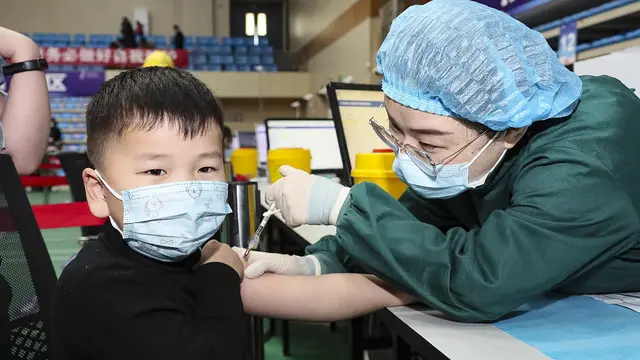China is set to continue its strict COVID-19 policies into next spring, Wu Liangyou, deputy head of the National Health Commission's (NHC) Disease Control and Prevention Division, said at a conference in Beijing on Saturday.
Wu said fast actions on the recent COVID-19 flare-up across the country were effective in preventing the spread of the virus, stabilizing the situation against the pandemic nationwide.
With the uncertainties and challenges brought by COVID-19 globally, China will uphold its strict COVID-19 policies to ensure the safety of the people, he said.
The country has faced a new wave of COVID-19 cases in recent weeks. From October 17 to November 5, China reported 918 COVID-19 cases across 44 cities in 20 provinces, according to health authorities. The flare-up has been kept under control thanks to immediate prevention measures and mass screening, they said.
The latest COVID-19 outbreak involved multiple transmission chains across the country and the epidemic control and prevention situation was still challenging, compounded by the winter season, Mi Feng, a spokesperson for the NHC, said at Saturday's conference.
As of November 5, more than 2.3 billion COVID-19 vaccine doses had been administered and over 1.7 billion people were fully vaccinated.
Wu said many cities in China have already been rolling out booster shots for key groups, including border workers and medics, as well as the elderly who are at high risk.
"Local authorities can decide which groups should be included for the booster shots based on the local COVID-19 situation. Other people who are eligible can also have booster shots," he said.
For now, about 38 million people across the nation have received booster shots.
In addition, many places have carried out COVID-19 vaccination for children and teenagers aged 3-19 as the number and severity of cases among children have been climbing up.
"Some research from other countries shows that hospitalizations among children are 10 times than earlier this year," said Wang Huaqing, chief immunologist at the Chinese Center for Disease Control and Prevention.
He added it is more challenging to control the situation when the virus is transmitted among children as they often interact closely with their peers at kindergartens or schools.
China's inactivated vaccines have already been authorized for children's use.
(CGTN)
 简体中文
简体中文







